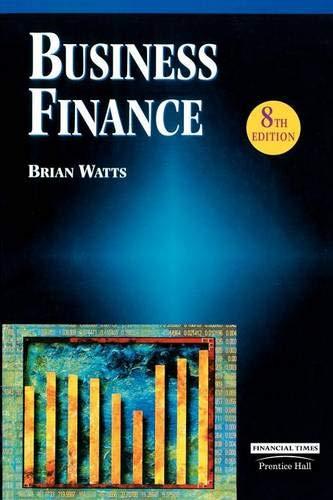Question
On January 1, 2014, Jose Company purchased a building for $208,000 and a delivery truck for $21,600. The following expenditures have been incurred during 2016:
On January 1, 2014, Jose Company purchased a building for $208,000 and a delivery truck for $21,600. The following expenditures have been incurred during 2016:
- The building was painted at a cost of $5,300.
- To prevent leaking, new windows were installed in the building at a cost of $11,000.
- To improve production, a new conveyor system was installed at a cost of $37,800.
- The delivery truck was repainted with a new company logo at a cost of $900.
- To allow better handling of large loads, a hydraulic lift system was installed on the truck at a cost of $4,900.
- The truck's engine was overhauled at a cost of $4,000.
Required:
1. Determine which of those costs should be capitalized. Assume that all costs were incurred on January 1, 2016. Select "Yes" if the cost should be capitalized; otherwise select "No".
| The building was painted at a cost of $5,300. | No |
| To prevent leaking, new windows were installed in the building at a cost of $11,000. | No |
| To improve production, a new conveyor system was installed in the building at a cost of $37,800. | Yes |
| The delivery truck was repainted with a new company logo at a cost of $900. | No |
| To allow better handling of large loads, a hydraulic lift system was installed on the truck at a cost of $4,900. | Yes |
| The truck's engine was overhauled at a cost of $4,000. | No |
Feedback
Capital expenditures are costs that improve an asset and are added to the asset account. Debit the asset account and credit Cash for amount paid. Revenue expenditures are costs that keep an asset in its normal operating condition and are treated as an expense.
Prepare the journal entry to capitalize the conveyor system. How does this entry affect the accounting equation? Indicate the effect on financial statement items by selecting "" for decrease (or negative effect), "+" for increase (or positive effect) and "NE" for No Entry (or no effect) on the financial statement.
| Journal | Balance Sheet | Income Statement | |||||||||||||
| Stockholders | Net | ||||||||||||||
| Date | Description | Debit | Credit | Assets | = | Liabilities | + | Equity | Revenues | Expenses | = | Income | |||
| Jan. 1 | Cash | fill in the blank 133c54ff505fffe_2 | |||||||||||||
| Accounts payable | fill in the blank 133c54ff505fffe_10 | ||||||||||||||
Feedback
Incorrect
Prepare the journal entry to capitalize the hydraulic lift. How does this entry affect the accounting equation? Indicate the effect on financial statement items by selecting "" for decrease (or negative effect), "+" for increase (or positive effect) and "NE" for No Entry (or no effect) on the financial statement.
| Journal | Balance Sheet | Income Statement | |||||||||||||
| Stockholders | Net | ||||||||||||||
| Date | Description | Debit | Credit | Assets | = | Liabilities | + | Equity | Revenues | Expenses | = | Income | |||
| Jan. 1 | fill in the blank d7cd2a017fccf95_2 | ||||||||||||||
| fill in the blank d7cd2a017fccf95_10 | |||||||||||||||
Feedback
Capital expenditures are costs that improve an asset and are added to the asset account. Debit the asset account and credit Cash for amount paid. Revenue expenditures are costs that keep an asset in its normal operating condition and treated as an expense.
2. Determine the amount of depreciation for the year 2016. The company uses the straight-line method and depreciates the building over 25 years and the truck over six years. Assume zero residual value for all assets. Round your intermediate calculations and answers to the nearest whole dollar.
| Asset | 2016 Depreciation |
| Building | $fill in the blank aee3f7fe9071007_1 |
| Truck | $fill in the blank aee3f7fe9071007_2 |
Feedback
Calculate depreciation for the appropriate assets. Set up T account for accumulated depreciation. Determine book value at end of 2016. Record depreciation by increasing the expense account.
Prepare the journal entry to record depreciation: How does this entry affect the accounting equation? Indicate the effect on financial statement items by selecting "" for decrease (or negative effect), "+" for increase (or positive effect) and "NE" for No Entry (or no effect) on the financial statement.
| Journal | Balance Sheet | Income Statement | |||||||||||||
| Stockholders | Net | ||||||||||||||
| Date | Description | Debit | Credit | Assets | = | Liabilities | + | Equity | Revenues | Expenses | = | Income | |||
| Dec. 31 | fill in the blank 3e3431047fe7fd6_2 | ||||||||||||||
| fill in the blank 3e3431047fe7fd6_10 | |||||||||||||||
| fill in the blank 3e3431047fe7fd6_18 | |||||||||||||||
Feedback
Calculate depreciation the appropriate assets. Set up T account for accumulated depreciation. Determine book value at end of 2016. Record depreciation by increasing the expense account.
3. Prepare a partial Balance Sheet to show how would the assets appear December 31, 2016.
| Jose Company | ||
| Balance Sheet (Partial) | ||
| December 31, 2016 | ||
| \ | ||
| Total property, plant, and equipment | ||
Step by Step Solution
There are 3 Steps involved in it
Step: 1

Get Instant Access to Expert-Tailored Solutions
See step-by-step solutions with expert insights and AI powered tools for academic success
Step: 2

Step: 3

Ace Your Homework with AI
Get the answers you need in no time with our AI-driven, step-by-step assistance
Get Started


